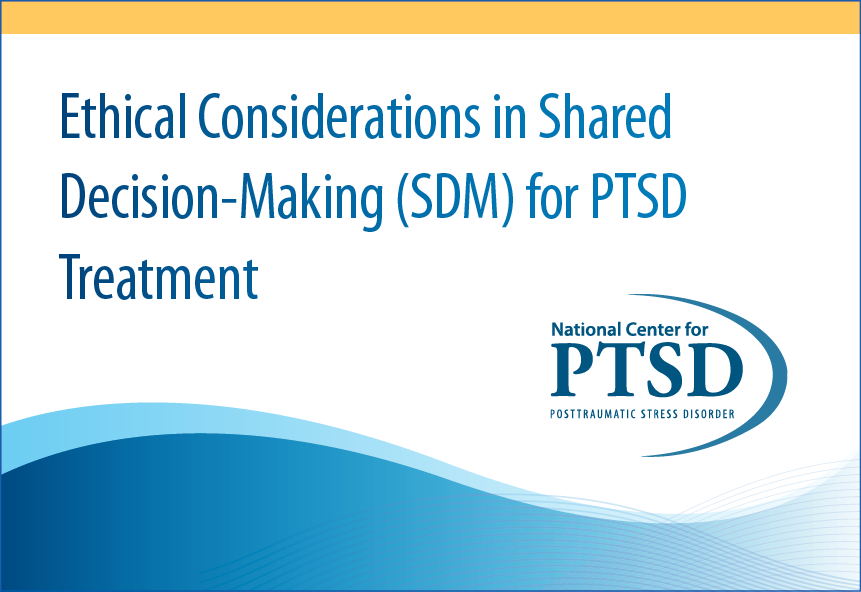PTSD: National Center for PTSD
Ethical Considerations in Shared Decision-Making (SDM) for PTSD Treatment
Continuing Education
This section brings together free in-depth Continuing Education resources for the Professional community concerned with trauma.
Ethical Considerations in Shared Decision-Making (SDM) for PTSD Treatment
- Date Created: 11/30/2022
- Time to Complete: 1 hour
- Credits: ANCC, APA, ASWB, ACCME, NBCC, Other Orgs
- Skill Level: Intermediate
- Course Series: PTSD 101, PTSD Consultation Lecture Series
 Author(s):
Author(s):
Description
The VA/DoD Clinical Practice Guideline for the Treatment of PTSD recommends using shared decision-making (SDM) in the treatment planning process. Shared decision-making allows the patient and provider to choose an evidence-based treatment in a collaborative manner. As with many aspects of clinical work, SDM elicits ethical considerations for clinicians, such as how to take into account provider expertise in specific treatments, the availability of treatments at the clinical site, and to what extent the patient and clinician each direct the treatment plan.
This course discusses ethical considerations in SDM, including common pitfalls in selecting amongst evidence-based treatment options. Resources to support the implementation of SDM are included.
Goals and Objectives
- Identify ethical considerations in shared decision-making and how they relate to the provision of evidence-based treatments
- Understand the common pitfalls in the shared decision-making process
- Describe the benefits of shared decision-making for stakeholders and identify tools to support shared decision-making


























